- Home
- Paul Christopher
The Templar Legion Page 11
The Templar Legion Read online
Page 11
Crocodiles.
The Nile version, up to twenty feet long and sometimes weighing as much as a ton—bronze, the green-yellow-and-dirty-purple prehistoric horrors—could travel up to forty miles an hour if they were hungry enough. They had sixty-eight cone-shaped teeth and a bite force of five thousand pounds per square inch. They sometimes hunted in packs of five or more and had been known to take down a four-thousand-pound black rhinoceros. An average-sized human being would be little more than a hors d’oeuvre.
Holliday flailed his way frantically back to the surface. He was being swept along with the current along with the remains of the Pevensey. He shook the water out of his eyes and spotted Rafi struggling to drag an unconscious Peggy toward the shore. Captain Eddie was already there, hauling himself up the muddy bank. The half-submerged wire kindling basket whirled by and Holliday reached out and levered the hatchet out of the top piece of firewood. On the shore Captain Eddie yelled out a warning.
“¡Detrás de usted! Behind you!”
A huge, surging creature was powering its way toward him, massive armored tail swirling, its dead dinosaur eyes barely breaking the surface of the swiftly flowing river. Almost immediately Holliday realized that the grotesque creature had its attention elsewhere—it was racing toward Peggy as Rafi and Captain Eddie tried to haul her out of the water.
Holliday twisted away to one side like a matador playing a bull and backhanded the blade of the hatchet into the creature’s eye. The crocodile reared up, making a terrible, deep-throated bellowing sound. Holliday managed to jerk the hatchet out of the animal’s eye and struck out for the shore as the wounded creature rolled away from him. He reached the shallows and staggered to his feet as Captain Eddie came back down the bank and held out one hand.
“I would advise you to be a little quicker, señor,” said the Cuban. He jerked Holliday up onto the muddy shore, sweeping the big bowie knife out of its sheath. As Holliday stumbled up the bank he turned and saw Eddie lunging forward and driving the heavy blade up to the hilt high between the eyes of the already half-blinded giant that had been seeking its revenge.
The crocodile squirmed and shivered as the knife went into its brain and then suddenly went rigid. Eddie pulled out the blade, reached into the water, grabbed one of the creature’s stubby legs, then half flipped the body, exposing the pale, eggplant-shaded belly. He pushed the bowie knife into the crocodile’s throat and sawed downward, esophagus, heart, lungs, liver and intestine spilling out into the shallows like a hideously foul-smelling stew. He used his boot to push the disemboweled creature’s corpse into the current.
“That should keep his friends busy for a while,” said Eddie, grabbing Holliday’s elbow and helping him up the riverbank. At the edge of the dense jungle Rafi was bending over Peggy, who was sitting up and coughing, her back against the thick trunk of a tree that overhung the river.
“She’s okay,” said Rafi. “Half-drowned but okay.”
Eddie watched the remains of Pevensey washing up onshore like flotsam. He turned back to Holliday. “You have some serious enemies, señor. Perhaps you should have warned me.”
“Sorry about that,” answered Holliday, hands on knees as he tried to catch his breath. “I didn’t think they wanted me that badly.”
“I think you were wrong, Comandante,” said Captain Eddie. “I think they want you very badly indeed.”
Holliday climbed to his feet, his clothes smeared with mud, stinking but alive. “Where’s the widest part of the river closest to here? I need about fifteen hundred feet, say half a kilometer.”
“We’ve just been attacked with rockets and nearly eaten by crocodiles,” said Peggy, her voice weary. “Why would you want to know something like that?”
“Because that’s how much water a good floatplane pilot in a Caravan needs to land,” said Holliday.
“Twenty kilometers behind us or thirty ahead,” said Captain Eddie, wiping the blade of his knife across his jeans. He slid it back into its sheath.
“How long to get to us here?”
“By boat, four hours, more likely five at this time of day. Twice that by land. There are very few trails, so they would have to stay close to the river, follow its turns.”
“Are they likely to find boats?” Holliday asked.
“Perhaps a dugout or two, small ones, not what they need. There are no villages along that part of the river,” answered Eddie.
“So we’ve got eight hours, maybe, until nightfall.”
“For what?” Rafi asked, crouched beside Peggy.
“To get ready,” said Holliday.
14
“Point me toward a good hardwood,” said Holliday, standing in the narrow clearing between the riverbank and the jungle.
“A tree, señor?” Eddie asked a little skeptically. There were thousands of trees all around them.
“A tree.” Holliday nodded. “A hardwood in particular.”
“Miss Blackstock is leaning against one,” said Eddie, pointing. The tree in question was sixty or seventy feet tall, its summit lost in the jungle canopy overhead. Its roots were splayed and thick, raising the trunk like the legs of a massive spider. The leaves were broad, round and a deep, rich green. The branches hung down like a heavy curtain. “It is an iroko tree. There has been much poetry written about it. It is also in danger of extinction.”
“Looks like it’s flourishing to me.” Holliday shrugged.
“It is pollinated only by the strawberry fox-eared fruit bat. The bat is being killed off by farmers velarcutting for their crops.”
Holliday approached the tree and looked up through the tangle of limbs. Rafi and Peggy followed his gaze.
“What are you looking for?” Rafi asked.
“A dead branch.”
“I thought we were trying to get away from the guys on the floatplane,” said Peggy.
“They’ve got weapons and we don’t,” said Holliday coldly. “One way or the other they’ll catch up to us and kill us, so we have to kill them first.”
“With a dead branch?” Rafi said.
“With that dead branch,” said Holliday. He reached up with the hatchet and hacked off a leafless branch about three fingers thick. He pulled it down, trimmed one end and held it up against himself to measure. The branch was a little shorter than he was, making it about six feet long.
“We’re going to beat them to death with clubs when they go to sleep?” said Peggy.
“Why don’t you and Rafi help Captain Eddie see what he can salvage from Pevensey and I’ll show you,” suggested Holliday, pointing to the Cuban, who was pulling wreckage out of the river.
Half an hour later, after borrowing Eddie’s knife, Holliday’s six-foot stave was further sculpted. Both ends slightly notched, the ends a little more than half an inch thick now, the center a little more than half an inch in diameter. The “front” of the stave was sapwood, with the heavier heartwood on the “inside,” creating a natural laminate. With that much done Holliday went down to the riverbank to see how his companions were doing.
Eddie and the others had retrieved most of the material that had washed up onshore or was easily accessible without arousing the interests of the half-submerged fleet of crocodiles cruising on the edge of the main current. While Eddie and Rafi carried the heavier things higher on the bank Peggy sorted out what they had already gathered. It was an eclectic collection.
Letting his eyes run over the exhibition of junk spread out in the little clearing, Holliday took a quick inventory. There was a pair of two-by-fours with pieces of wallboard and nails still clinging to them—Holliday guessed they were uprights for the boiler room enclosures. The window frame and cardboard shutters; two unopened gift boxes of Ginsu steak knives, twenty-four knives in all; a full-sized ax embedded in a log; a soggy-looking roll of duct tape and an old bamboo fishing rod with a reel of black nylon line still attached.
“Just about everything I need,” said Holliday. “Maybe we really can even the odds a little.” He turned
and found Captain Eddie beside him.
“Anything I can do, compadre?”
“A fire,” said Holliday after thinking for a moment. “A small one, but nice and hot.”
“Going through the files, I can come up with only four really viable candidates to replace Kolingba,” said Allen Faulkener, dropping a stack of blue-and-red-striped top secret folders on Sir James Matheson’s desk. “The obvious choice is Dr. Oliver Gash, late of Baltimore, Maryland, also known as Olivier Gashabi, a refugee from Rwanda in the early days of the genocide. He has the brains, the connections and the innate greed to run Kukuanaland as we see fit, given the right incentives. Number two is Dr. Amobe Barthélemy Limbani, the governor of the Vakaga prefecture before its abrupt name change to Kukuanaland. He presents several serious drawbacks in that he may well be dead; if he’s not we haven’t been able to find him; and last but not least, if he is alive and if we could find him he might well not be bribable.”
“Everybody has a price,” said Matheson. “And if he’s not bribable he’s got something in his past that makes blackmail possible.”
“Not in Limbani’s case. He appears to be clean as a whistle, and besides, there are other problems that may be insurmountable.”
“The third possibility?” Matheson said.
“Ah, the dark horse.” Faulkener nodded. “Francois Nagoupandé. He was vice governor of Vakaga and the man who betrayed Limbani. He lives in a compound in Bamako, Mali, on his ill-gotten gains. He’s terrified that Kolingba will try to assassinate him, so he’s surrounded by bodyguards. Best of all he is a Banda, not a Yakima like Limbani—in fact, his ethnicity was the reason he was appointed vice governor.”
“Is he approachable?” Matheson asked.
“Yes,” said Faulkener. “We have done so already.”
“And his response?”
“Anything that can remove the Kolingba threat and promises a uniform with lots of medals, and he’s your man. Rather like an Idi Amin in the rough.”
“He wants money, too, I presume.”
“By his standards a great deal, but to MRI it would be pocket change. We also have to promise him an escape route and a bank account in Switzerland when the inevitable revolution arrives. He’s an idiot, but he’s no fool, if you know what I mean.”
“We’ll have to strike a special company. Something with a very large initial offering that has long since fallen into decline. One of the early copper mines in the Philippines. Preferably something suitably colonial. Dutch or Belgian. I want us to have absolute control and no transparency.”
“I’ll see what I can find,” said Faulkener. “What about Nagoupandé?”
“I’d like to meet with him as soon as possible,” Matheson said.
“Easy enough to arrange, I should think,” said Faulkener.
“Send him the private jet,” said Matheson. “That should impress him.” His smile broadened. “Perhaps we should get him fitted up at Gieves and Hawkes, then bring him to the meeting when Lanz is ready.”
“Medals?”
“As many as you can find. Make him look like a bloody king.”
There was a good reason for the logo of Blackhawk Security being the proud carved bow figurehead of a Viking longboat: Lars Thorvaldsson, the founder of Blackhawk, had considered himself a modern-day Viking. Lars had made billions over the years, and had always said he’d found inspiration from his Viking ancestors. According to him, he was directly related to Leif Erikson, through his father, Erik Thorvaldsson, otherwise known as Erik the Red.
It was Lars who came up with the motto, “We founded America; now we keep her safe,” and as the company grew so did the Viking tradition. Blackhawk’s first television advertisement aired during the halftime break for the Super Bowl VI in 1972, showing a wooden ship with a Blackhawk figurehead landing on the Duluth waterfront, along with a Viking in a horned helmet blowing the traditional Gjallarhorn, the calling horn of the traditional Norse sagas.
With the death of Lars Thorvaldsson in 1989 and the subsequent purchase of the company by the multinational corporation owned by Kate Sinclair combined with the beginning of the elder Bush’s Iraq war, Blackhawk Security grew even larger, and so did the Viking tradition. There were seminars on Viking core values of strength, honor and pride for senior executives, Viking workshops of various kinds for midlevel employees, Viking reenactments for the whole family and Viking summer camp for the kids. Kate Sinclair even built the World of the Vikings theme park near the Mall of America, not far from Lars Thorvaldsson’s original office in Bloomington, Minnesota.
In light of their heavy Viking indoctrination, it was hardly surprising that the seven-man Blackhawk intrusion team, led by Michael Pierce Harris, had decided that they would approach their objective in the “old Viking way.” Perhaps they even saw themselves as the mythical “gray ghosts,” the dusk trolls who came out of the fading light wearing their Galdrastafir, the runish emblems that made them invisible. Whatever it was they were thinking, it didn’t work.
They came in two dugouts, three in one, four in the other, with Harris the last man out of the second canoe. The light was failing, just as Holliday had hoped. At a glance the clearing looked empty, although it was obvious from the tracks up the muddy bank and the salvaged wreckage that this was where the survivors of the Hellfire attack had climbed out of the water.
All seven men, Harris included, were wearing full jungle camouflage BDUs, paratrooper boots and jungle camo slouch hats. They were armed with Heckler & Koch MP5s, Browning Hi-Power semiautomatic pistols and eight-inch KA-BAR knives. Several also carried M67 hand grenades on Sam Brownes looped over their shoulders. Harris carried a Glock 9 instead of a Browning.
The seven men came up the muddy riverbank yelling loudly. The quickest one up the slope died first. A two–foot-long arrow shot from Holliday’s rudimentary English longbow caught him just left of the heart and penetrated to his spine. The arrow had been fletched with duct-tape feathers and the point was just fire-hardened wood. Nevertheless at one hundred and eight foot-pounds per square inch of force it was just as lethal as the MP5 he never got to fire.
Numbers two and three stepped on muddy cardboard packing laid out on the riverbank, dropping down into a shallow pit onto twenty-four Ginsu steak knives.
The fourth man made it to the top of the bank, where Holliday’s second homemade arrow pierced his groin, slicing into his bladder and intestine. Lying flat in the jungle foliage a few yards to the right, just out of the clearing, Captain Eddie saw that the man was still alive and dangerous. He hurled himself forward out of the bushes in a diving tackle, hitting the wounded man waist high. He drove the bowie knife underhanded into the man’s belly, then sawed upward under the ribs, slicing into the right lung and finally piercing the heart.
Seeing the odds so drastically reduced within less than a minute, Harris veered into the jungle, trying to put as much distance between the clearing and himself as quickly as possible. The remaining members of Harris’s team were right behind him, the Viking code forgotten. With an arrow already notched and drawn Holliday let fly. The hardened point of the arrow struck Harris between the first and second cervical vertebra and without the cutting point of a steel head the arrow slipped sideways and punctured the internal carotid artery before jerking upward and piercing the tongue. Harris was paralyzed instantly, fell to his knees and watched mutely as his lifeblood poured from his mouth onto the dark rich earth of the jungle floor.
In the clearing Holliday tossed the longbow aside and pulled the MP5 out of one dead man’s loosened grip. He fired a burst in the direction of the fleeing men, but managed only to clip the foliage above their heads.
There was a sudden, stunned silence. Rafi and Peggy stared at the bodies, paying particular attention to their own grisly handiwork. Captain Eddie went from dead man to dead man, stripping their weapons, their floppy slouch hats and finally their paratrooper boots.
“Their shoes?” Rafi queried, stunned at the Cuban’s methodical concent
ration.
“The floor of the jungle can be very dangerous for your feet,” said Eddie.
“He’s right,” said Holliday, who was pulling the bodies from the hidden knife pit. Each knife came out of the dead flesh with soft, almost obscene sucking noises. Holliday began stripping both men. “Give us a hand,” he instructed. “The quicker we get this done the sooner we can get out of here.”
They gathered up anything useful, left the bodies and headed down the riverbank to the two dugouts. As they climbed into the crudely built canoes it began to rain.
“Wonderful.” Holliday grunted, pushing his dugout away from the shore. “Just what we needed.”
15
Captain Jean-Luc Saint-Sylvestre sat in his bedroom and stared through the viewfinder of the Canon EOS 5D at the hotel across from him. The Ali Pasha Hotel was on Clapham Street, just off the Brixton Road in south London.
The policeman could imagine the interior: six floors of tiny rooms and toilets the size of cupboards. Narrow stairways, peeling wallpaper and groaning pipes. Bedbugs, roaches and mice. Ten thousand places in London just like it. Anonymity defined.
The whole area was unofficially known as the capital of Afro-Caribbean England and it was easy enough for Saint-Sylvestre to fit in as long as he kept a check on his university-educated accent.
As well as being the densest part of black London, Brixton was also the crime capital of the city. Behind the colorful facade of the fresh fruit and vegetable stands and the street-long markets for African and Caribbean clothes, you could trade in just about any vice the human mind could think of, from heroin to hookers, smuggled cigarettes to smuggled women, blood diamonds to body parts, machine guns, stolen goods, counterfeit handbags, wristwatches and haute couture.
From your heart’s desire and passions to your soul’s blackest cravings—all were the stock-in-trade of Brixton. All of which made Brixton a logical end for Saint-Sylvestre’s pursuit of the still enigmatic Konrad Lanz.

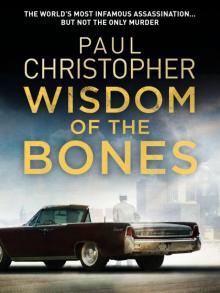 Wisdom of the Bones
Wisdom of the Bones The House of Special Purpose
The House of Special Purpose The Second Assassin
The Second Assassin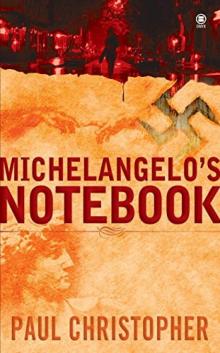 Michelangelo's Notebook
Michelangelo's Notebook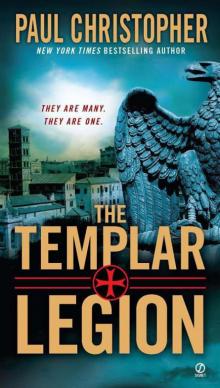 Templar Legion
Templar Legion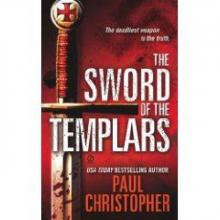 The Sword of the Templars t-1
The Sword of the Templars t-1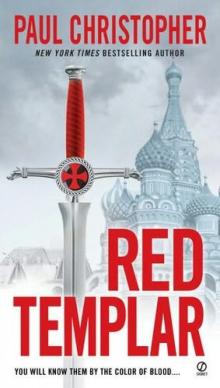 Red Templar
Red Templar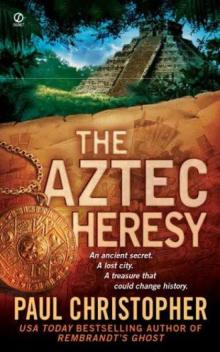 The Aztec Heresy
The Aztec Heresy The Templar Legion
The Templar Legion Rembrandt's Ghost
Rembrandt's Ghost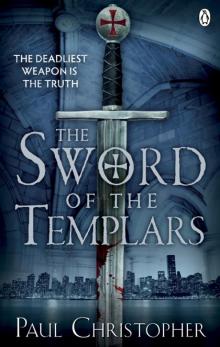 Sword of the Templars
Sword of the Templars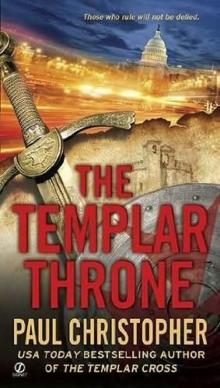 The Templar throne t-3
The Templar throne t-3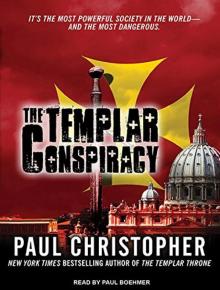 The Templar Conspiracy
The Templar Conspiracy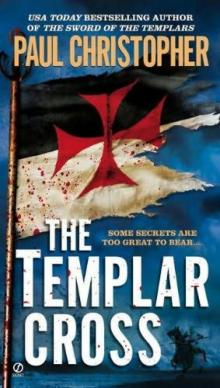 The Templar Cross t-2
The Templar Cross t-2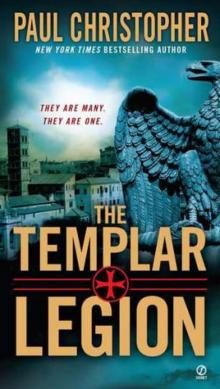 The Templar Legion t-5
The Templar Legion t-5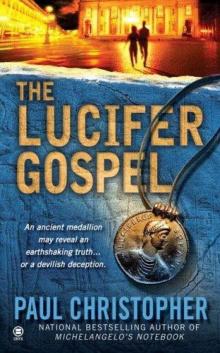 The Lucifer Gospel
The Lucifer Gospel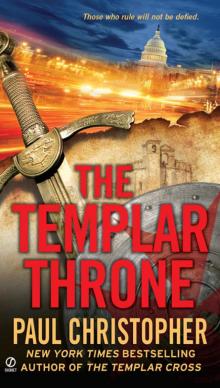 Templar Throne
Templar Throne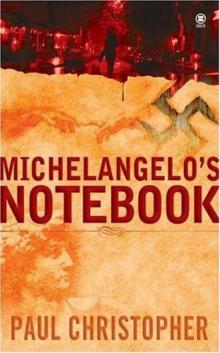 Michelangelo_s Notebook fr-1
Michelangelo_s Notebook fr-1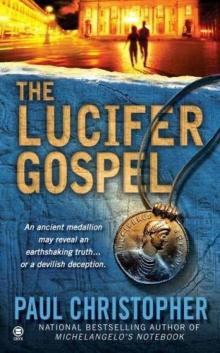 The Lucifer Gospel fr-2
The Lucifer Gospel fr-2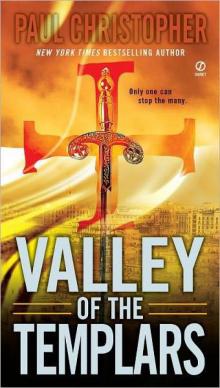 Valley of the Templars ts-7
Valley of the Templars ts-7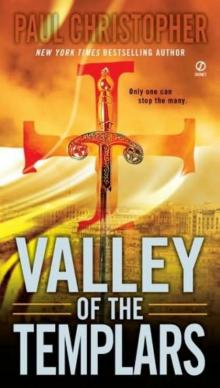 Valley of the Templars
Valley of the Templars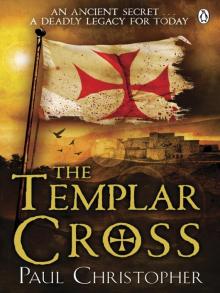 Templar Cross
Templar Cross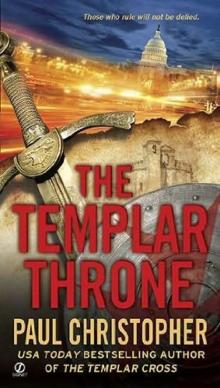 The Templar Throne
The Templar Throne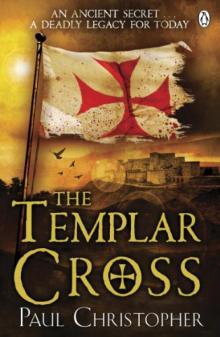 The Templar Cross
The Templar Cross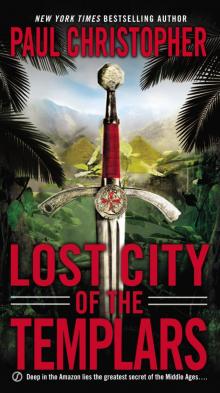 Lost City of the Templars
Lost City of the Templars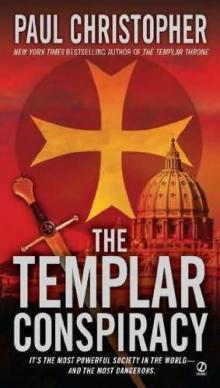 The Templar conspiracy t-4
The Templar conspiracy t-4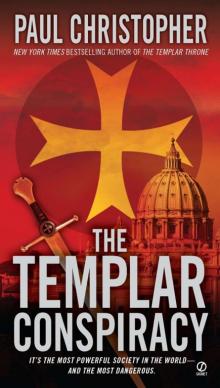 Templar Conspiracy
Templar Conspiracy